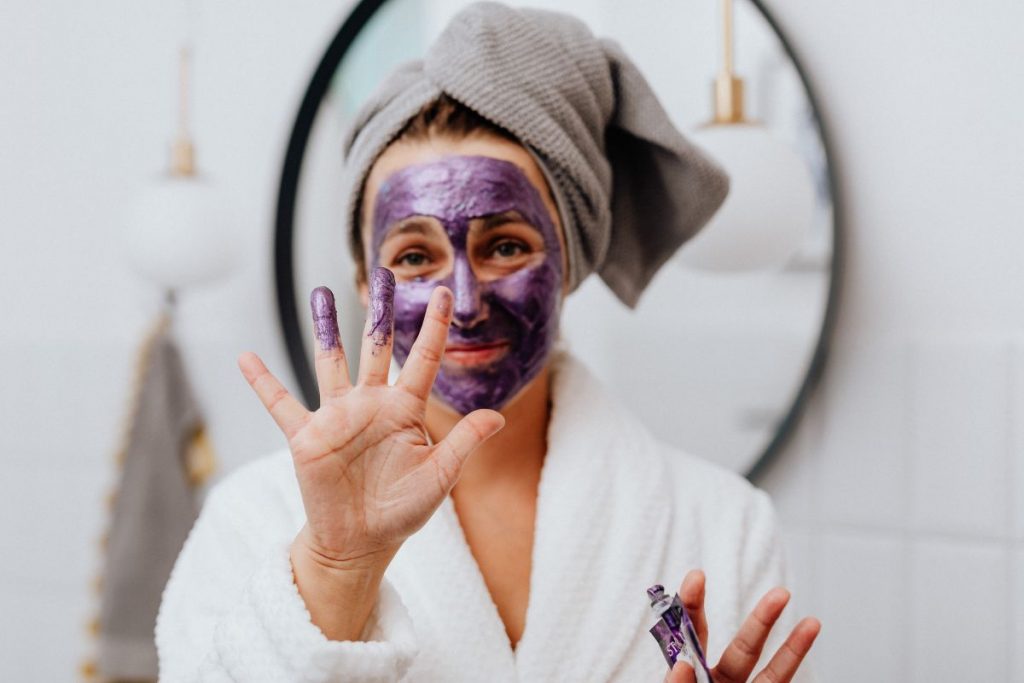Winter is coming, and with it, those three words will be used to start every seasonal based article from now on…
Sadly, when winter comes, so do issues with our skin; the cold weather means that our skin needs more love and attention compared to the previous seasons. Those who are conscientious about their skincare routines will have already switched up their products and procedures, changing up their cosmetics to accommodate seasonal shifts in temperature, humidity and the rest.
Sometimes, one of the defining looks of the season is one that’s not welcome; our dry and chafed skin. This is down to myriad factors, some environmental and some behavioural, which all seem to collide as party season cranks into gear, a time when we would most love to avoid skincare issues. Fortunately, there are things you can do to mitigate the appearance of dreaded winter skin; here are 10 expert tips on tweaking your skincare routine for winter.
Beware The Perils Of Party Season
Sleep, hydration, drink and diet…all crucial elements of a holistic approach to keeping your skin healthy, and all elements that truly suffer over the winter party season. If you’re to keep your skincare routine ticking over and maintain a glowing, radiant appearance, then it’s essential that you don’t let standards slip in terms of sleep, in particular.
Your skin creates new collagen while you sleep, helping your skin repair itself and leading to a more plump appearance. So, don’t neglect getting a regular 7 to 9 hours, even when the temptation to go for another round of festive drinks is strong.
Read: The best ways to improve your circadian rhythm and sleeping patterns

Avoid Products That Strip Off The Skin’s Natural Layer Of Protection
The harsher conditions of the winter months can damage our precious skin, so it’s vital that you’re not stripping off the skin’s protective layers with equally harsh products.
Be especially cautious when applying alcohol based toners; they tend to strip the skin of natural lipids and proteins that moisturise our skin, which we need much more of during winter, when indoor heating dries out our skin excessively.
Daily use of exfoliating cleansers risk similarly damaging the skin, with the temptation in winter to go harder on the process to remove excess dry, flaky skin. But if you exfoliate too often in winter, you’ll only exacerbate the problem, stripping off that natural protective layer. Sadly, this can become a vicious circle, so during the colder months, switch up to a gentle milk based cleanser.
Audit Your Arsenal & Check Expiry Dates
As you swap out your summer serums for winter-ready replacements, it’s worth taking a moment to audit your existing skincare arsenal. Winter is a long season, and you want to ensure that the products you’re relying on will see you through to spring without losing their efficacy.
When selecting which products to prioritise during the colder months, paying attention to expiry dates on cosmetic packaging is crucial. Many active ingredients, particularly those in serums and treatments, can degrade over time, becoming less effective or, in some cases, irritating to the skin. There’s little point investing in a hyaluronic acid serum to combat winter dryness if it’s going to expire in January.
Get into the habit of checking the PAO (Period After Opening) symbol—that little open jar icon with a number followed by ‘M’ – which indicates how many months a product remains effective after opening. If you’ve got a rich winter moisturiser that’s been lurking at the back of the bathroom cabinet since last year, it might be time to let it go and invest in something fresh.

Don’t Neglect SPF Just Because It’s Cold & Cloudy
Just because you haven’t seen any evidence of the sun in weeks and you’re stepping out with only your face peeking out from under several layers, doesn’t mean you should neglect to wear sunscreen with SPF protection.
Though there are naturally fewer UV rays around in winter, they can still be strong enough to age your skin; remember that you can still damage your skin, even if you’re not getting burnt or tanned. SPF plays a huge role in healthy, happy skin, and during the colder, darker months, an SPF factor of around 15 should be sufficient.
Hydration Is More Important Than Ever In Winter
Speaking of assumptions made about the summer and winter months, it’s also wrong to assume that hydration is only a pressing concern when it’s hot. In fact, during winter keeping hydrated is more important than ever.
During the winter, more water vapour can be lost through your breath, causing you to lose valuable moisture. And that’s before we consider our diets and drinking habits during the party season. With alcohol and caffeine being diuretics and abundantly consumed over December, it’s essential that you replenish yourself with water regularly to ensure your skin is properly hydrated.
Dehydrated skin takes on a dull, uneven appearance, and fine lines are often more visible. So, make sure you’re drinking at least 8 cups a day of the good stuff.
Be aware that the ubiquity of central heating use in the colder months, and the dry air they can lead to domestically, can also bring about dehydrated skin. Sustain a sufficient amount of moisture in the air in your home with a humidifier or dehumidifier, and prevent your skin from drying out.
Use A Heavier Moisturiser
Of course, hydration doesn’t only apply to what you’re putting in your body; you also need to hydrate your skin topically with added vigilance over winter. During the colder months, our skin tends to produce less natural oil, so it’s a good idea to switch to a heavier moisturiser ideally containing either hyaluronic acid or glycerin; these products help keep all the moisture locked into your face rather than losing it to the elements.

Eat More Antioxidants
The foods you eat can make a big difference to your complexion, too. There’s increasing scientific consensus that foods high in antioxidants and anti inflammatory properties are great for keeping our skin looking radiant. This is particularly important to bear in mind during winter, when our diets can get a little, shall we say, erratic.
So, make sure you’re including so called ‘superfoods’ that are high in antioxidants, such as blueberries, cranberries, artichokes and dark chocolate (rejoice!), as well as foods with lots of Vitamin C and E, which are believed to fight the appearance of fine lines. Foods high in these vitamins include citrus, strawberries, broccoli and kiwi. Finally, food boasting omega-3 is thought to firm up the skin and preserve collagen; oily fish, in particular, is fantastic for this.
Consider Cold Therapy For A Seasonal Boost
Whilst it may seem counterintuitive to expose yourself to even more cold during winter, controlled cold exposure through treatments like cryotherapy can actually benefit your skin.
Though traditionally associated with scar treatment, cryotherapy has evolved far beyond its origins to become a comprehensive skin-boosting treatment. This non-invasive procedure, which involves brief exposure to extremely cold temperatures, has gained popularity amongst those seeking to rejuvenate their winter-worn complexion.
When paired with other gentle treatments such as LED light therapy or ultrasound, cryotherapy can help reduce inflammation and tighten pores, giving your skin a natural lift just when it needs it most.

Don’t Forget Your Neck & Décolletage
It’s all too easy to focus solely on facial skincare during the colder months, but the delicate skin of your neck and décolletage deserves equal attention. These areas are particularly vulnerable to the harsh winter elements, especially when we’re bundled up in wool scarves and high-necked jumpers that can irritate the skin.
Apply your winter moisturiser all the way down to your chest, and consider using a specially formulated neck cream to maintain the skin’s elasticity. Remember to extend your SPF protection to these areas as well—they’re just as susceptible to UV damage as your face, even in winter.
Vital Vitamin D
Speaking of vitamins, the NHS suggests that ‘’During the autumn and winter, you need to get vitamin D from your diet because the sun is not strong enough for the body to make vitamin D.’’
This is particularly pertinent when considering skincare, as Vitamin D is also essential in helping our skin repair itself, playing a key role in skin protection and rejuvenation. Though Vitamin D is present in a variety of foods, such as oily fish, liver and egg yolks, it can be hard to get sufficient amounts in winter. The NHS recommends that some people may need to take a 10mg supplement daily between October and early March.
The Bottom Line
Winter needn’t spell disaster for your skin. By making a few strategic adjustments to your routine – switching to gentler cleansers, upping your hydration game both inside and out, and ensuring your products are still fit for purpose – you can maintain a healthy, radiant complexion throughout the colder months.
The key is being proactive rather than reactive; don’t wait until your skin is already suffering to make changes. Start tweaking your routine now, and you’ll thank yourself come spring.





